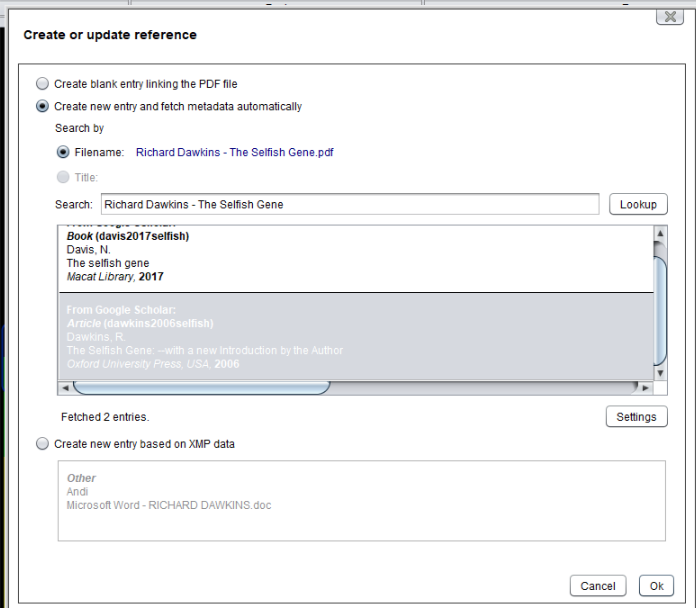
This automatically tries to download the fulltext, renames it automatically to the Bibtex-Key and also puts its into the configured file folder. Switch to the “General” tab and click “Get Fulltext” next to the “File” field.(Create a bibtex-key based on your settings - not necessary if you are fine with the arxiv-generated key).Click on “New Entry” (Ctrl-N), select “Arxiv” in the ID-based entry generator section and enter the Arxiv-ID, click “generate” - this will download the BibTeX from arxiv.Lookup the Arxiv-Identifier on, e.g., arXiv:1705.03449.I’m not sure whether the following approach works for all cases, but I tested it with some papers and it worked: Is that possible to simplify the process a little bit and automate some steps?
#DOCEAR AND JABREF PDF#
Since I use Docear to make MindMaps while Docear will change the bibtex formation defined in JabRef, finally, I will need to import the pdf link to my mindmap and save my mindmap and close docear, and then use version control software to recover the bibtex file in git. Docear describes itself as 'The Academic Literature Suite,' and works by combining the Freeplane mind-mapping software and the JabRef reference manager into a single cohesive tool.


What I do on daily basis is download/copy the bibtex info from the linked bibtex file on the arXiv paper page, import into JabRef and generate bib key and copy it then open the PDF online and download with the copied bib key as the file name next, on Jabref, link the PDF file and use Git to commit the new version of my bibtex file. One exception to this Docear, a single, well integrated, tool that handles mind-mapping, works as a citation manager, and does even more. Secondly, I don’t have a good workflow to make this process easy. First off, the arXiv paper may not be found on Google scholar and hence it seems not working with auto-fetch bibtex info using JabRef. I read the most recent arXiv papers in my field almost everyday, but I found it’s tedious to import information into my bibtex file.


 0 kommentar(er)
0 kommentar(er)
